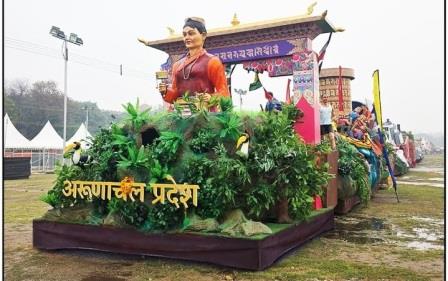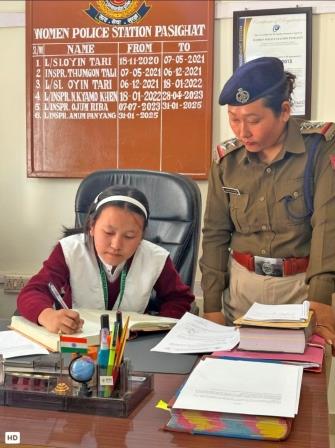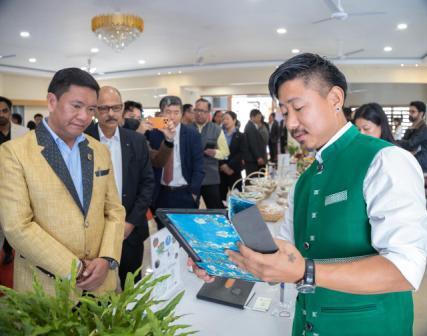-
 Arunachal tableau on R-Day spotlights state’s emergence as Adventure Capital…
Arunachal tableau on R-Day spotlights state’s emergence as Adventure Capital…
-
Etalin marks National Voters’ Day, encourages youth participation in democracy
-
Sona reviews PMGSY, VVP projects in Itanagar Circle
-
Lok Bhavan celebrates UP Diwas
-
 KGBV student leads WPS Pasighat on National Girl Child Day
KGBV student leads WPS Pasighat on National Girl Child Day
-
Meritorious students felicitated on National Girl Child Day
-
Awareness on POCSO held as part of National Girl Child…
-
Anini certifies 79 Nature Guides on National Tourism Day
-
 Startup success stories reflect potential of state’s youth: CM
Startup success stories reflect potential of state’s youth: CM
-
 Mein participates in vintage Willys Jeep Rally, inaugurates World War…
Mein participates in vintage Willys Jeep Rally, inaugurates World War…
Though it’s a long seven phase polling stretch for the 17th Lok Sabha, for Arunachal Pradesh it was a single day affair with both parliament and state assembly elections just completed.From the voting statistics which has started coming in, it’s apparent that this time too women will outnumber men in electoral participation in the state, just as it happened in 2014. But this does not necessarily mean that there will be reflection of the same pattern when it comes to actual representation in parliament and assemblies. It is a paradox which is true not only for Arunachal but also for the whole country and it’s continuing for a quite a long time. And interestingly, each time when these figures surface, the idea to give a fair representation of women in the corridors of power bubbles up, giving room for national intelligentsia to talk vociferously in its favour. Then everything subsides quietly and the patriarchal hegemony continues to have the last laugh.
We have seen so many debates & discussions, seminars & symposia harping on this issue, but it appears that the reality of Indian politics is not going to change soon and the stark disproportion in terms of gender representation will be an eternal-normal quality of the country’s parliamentary & state legislature setups.Throttling can also be an art, if the history of Women’s Reservation Bill, is objectively analysed. The Bill, which proposes 33% reservation for women in parliament and state legislatures,was passed by Rajya Sabha in 2010 but has been despoiled with repetitive successions in Lok Sabha for nine years since.
Putting aside the much hallowed and overused phrases depicting need for women empowerment, gender equality etc, which now have become cliché, it’s simple statistics alone which is enough to drive home the point why this bill is a genuine necessity in Indian electoral democracy. In 1962, turnout of women was only 47 per cent of total female electorate and by 2014 Lok Sabha election, it had shot up to 66 per cent, a remarkable rise by nearly 19 points.
Still, it was only 11.4 per cent women and 88.6 per cent men in last Lok Sabha and more or less similar figures in assemblies. Most political parties have their tailor-made theories as explanations for this disparity. But various studies suggest that women representatives bring better economic growth to their constituencies than their male counterparts.
Since the clarion calls to parties to give tickets to more women candidates have most of the time fallen on deaf ears, passing of Women’s Reservation Bill seems to be the only hope. Thus, for 17thLS, its safe passage should be the ‘most urgent’ assignment.

Kenter Joya Riba
(Managing Editor)She is a graduate in Science with post graduation in Sociology from University of Pune. She has been in the media industry for nearly a decade. Before turning to print business, she has been associated with radio and television.
Email: kenterjoyaz@easternsentinel.in / editoreasternsentinel@gmail.com
Phone: 0360-2212313

